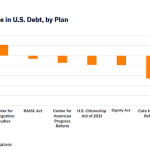
Brandon Gilkey is a seasoned real estate professional with over 15 years of experience in the industry, currently serving as the CEO of Investor Deals Today, a leading firm specializing in Single Family Residential Portfolio transactions in the United States.
Based in Phoenix, Arizona, Brandon has established himself as a trusted expert in real estate investments, with a focus on strategic planning, market analysis, and property management. He is also the managing partner of several real estate holding companies, including Sooner Business Holdings, BVVA Holdings, and Oklahoma MHP Investors under JB Capital, which together have amassed an impressive portfolio across multiple states.
Brandon’s journey in real estate began after earning his Bachelor of Arts in Theology from Abilene Christian University, where he also minored in Economics. He transitioned into real estate after a diverse career in community service and leadership roles, including serving as an associate pastor and working with youth organizations. This background has given him a unique, people-centered approach to his work, emphasizing relationship-building, mentorship, and integrity. Outside of real estate, Brandon Gilkey is actively involved in his community, where he enjoys mentoring aspiring professionals and engaging in volunteer work, staying committed to giving back and fostering growth both personally and professionally.
How did you transition from working in community service to real estate, and what challenges did you face along the way?
The transition was definitely a big leap, but I saw it as an extension of my desire to help others. In community service, I was focused on supporting individuals and building connections, which actually laid a solid foundation for my work in real estate. When I first started, the biggest challenge was learning the technical aspects of real estate, like market analysis, property valuation, and negotiation tactics. It felt like learning a new language. I remember sitting in my office late at night, reading articles, watching tutorials, and calling up mentors to understand the nuances.
Another challenge was adapting to the fast-paced nature of the real estate industry. In community service, things moved at a different pace, and the stakes were more emotional. Real estate is also about relationships, but it’s more transactional, and that was an adjustment. I learned to balance empathy with business acumen, and over time, I began to see how my background gave me a unique edge in building trust with clients. It was about leveraging my past experiences to create a more holistic, client-focused approach to real estate.
What do you believe sets apart a great real estate professional from a good one?
In my experience, the difference lies in the ability to genuinely listen and understand your clients’ needs. A good real estate professional knows the market, has the skills, and can close deals, but a great one goes beyond that. They make the effort to understand their clients’ goals, concerns, and motivations. It’s about building a relationship based on trust and empathy, not just seeing them as another transaction.
I always tell my team, “We’re not just selling properties; we’re helping people build their futures.” Whether it’s a first-time homebuyer or an experienced investor, I try to understand the “why” behind their decisions. This approach has helped me create lasting relationships, and many of my clients have come back to me for multiple transactions or referred their friends and family. It’s that level of trust and connection that elevates a professional from good to great.
How do you stay motivated in an industry that’s often unpredictable and competitive?
Real estate is certainly an unpredictable ride, but I stay motivated by focusing on the impact I can make. Each transaction represents a family finding their dream home or an investor securing their financial future, and that’s what keeps me going. When I hit a rough patch, I remind myself that I’m not just in this for the numbers – I’m here to help others succeed.
Another way I stay motivated is by setting personal and professional goals. I make it a point to celebrate small wins, whether it’s closing a deal, getting positive feedback from a client, or learning a new skill. I also stay engaged by mentoring others in the industry, which keeps me energized and allows me to pass on the knowledge I’ve gained over the years.
Can you share an example of a time when a deal didn’t go as planned, and how you handled it?
There was a property deal a few years ago that seemed like a straightforward transaction at first. The buyer was excited, and we were moving through the process smoothly. But then, a week before closing, we discovered a major issue with the property’s title – a hidden lien that hadn’t been disclosed. This threw a wrench in the entire deal, and both the buyer and seller were understandably upset.
Rather than panicking, I took a step back and analyzed the situation. I immediately contacted a trusted title attorney and worked closely with all parties involved to find a solution. It took a few extra weeks, and a lot of phone calls and meetings, but we managed to clear the lien and move forward with the sale. The lesson here was about staying calm under pressure and not giving up when obstacles arise. It reinforced the importance of thorough due diligence and always being prepared for the unexpected.
What role does technology play in your day-to-day real estate work?
Technology is a game-changer in real estate today. I use CRM systems to manage client relationships, track follow-ups, and streamline communication, which helps me stay organized and responsive. Virtual tours and 3D walkthroughs have become indispensable, especially with the shift toward remote interactions. These tools allow clients to experience a property without physically being there, which speeds up decision-making and broadens my reach.
Another way I leverage technology is through data analytics. I analyze market trends, pricing patterns, and buyer behaviors to provide clients with accurate insights. It’s not about replacing the human element – it’s about using technology to enhance the service I provide. Embracing these tools has allowed me to work more efficiently and stay ahead in a competitive market.
How do you balance your professional life with your personal commitments?
Finding balance is an ongoing challenge, but I’ve learned that setting clear boundaries is key. I’m intentional about scheduling time for my family, exercise, and personal hobbies, and I treat those commitments with the same importance as a business meeting. It’s easy to get caught up in the 24/7 nature of real estate, but I’ve realized that taking time to recharge makes me more effective in the long run.
I also prioritize tasks and delegate when possible. I have a great team that I trust to handle aspects of the business, which frees me up to focus on what matters most, both professionally and personally. It’s about quality, not quantity, and making sure that when I’m at work, I’m fully engaged, and when I’m at home, I’m present with my family.
What’s one piece of advice you would give to someone just starting in real estate?
Patience is everything in this business. When you’re starting out, it’s easy to get discouraged if deals aren’t coming through or if you’re struggling to find clients. Remember that success doesn’t happen overnight, and the most important thing is to stay consistent and keep learning.
Another piece of advice is to build genuine relationships. Real estate is a people business, and the connections you make will be your greatest asset. Take the time to understand your clients’ needs and goals, and always approach each interaction with integrity and transparency.
How do you handle stressful situations or high-pressure negotiations?
I’ve found that staying calm and composed is the best way to handle stress. When I’m in a high-pressure negotiation, I focus on listening first, rather than reacting. Understanding the other party’s perspective allows me to find common ground and create solutions that work for everyone.
I also remind myself that not every deal will go perfectly, and that’s okay. By maintaining a level-headed approach, I can think more clearly and make better decisions, even when things get tense.
How do you integrate your values into your real estate work?
Integrity and honesty are at the core of everything I do. I believe that being transparent with clients, even when it’s not the easiest route, is essential to building long-term trust. For example, if I think a property isn’t the right fit for a client, I’ll be upfront about it, even if it means losing out on a sale.
I also value giving back to the community. Part of my mission is to use my success in real estate to support local initiatives and help others. Whether it’s mentoring young professionals or volunteering, I try to integrate these values into my work whenever possible.
What’s your vision for the future of real estate, and how do you plan to adapt?
I believe the future of real estate lies in adaptability and embracing change. We’ve already seen how technology, like virtual tours and digital marketing, has transformed the industry, and I think that trend will continue. But beyond technology, I see a growing emphasis on sustainability and community-focused development.
My plan is to stay ahead by continuously learning, being open to new ideas, and ensuring that my business practices remain flexible and client-centered. The market will always evolve, but as long as you stay committed to your core values and adapt to new trends, there’s always a path forward.
Read more:
Q&A with Brandon Gilkey: A Look Into Real Estate and Community






